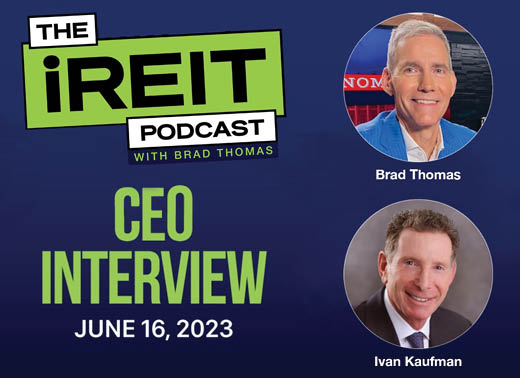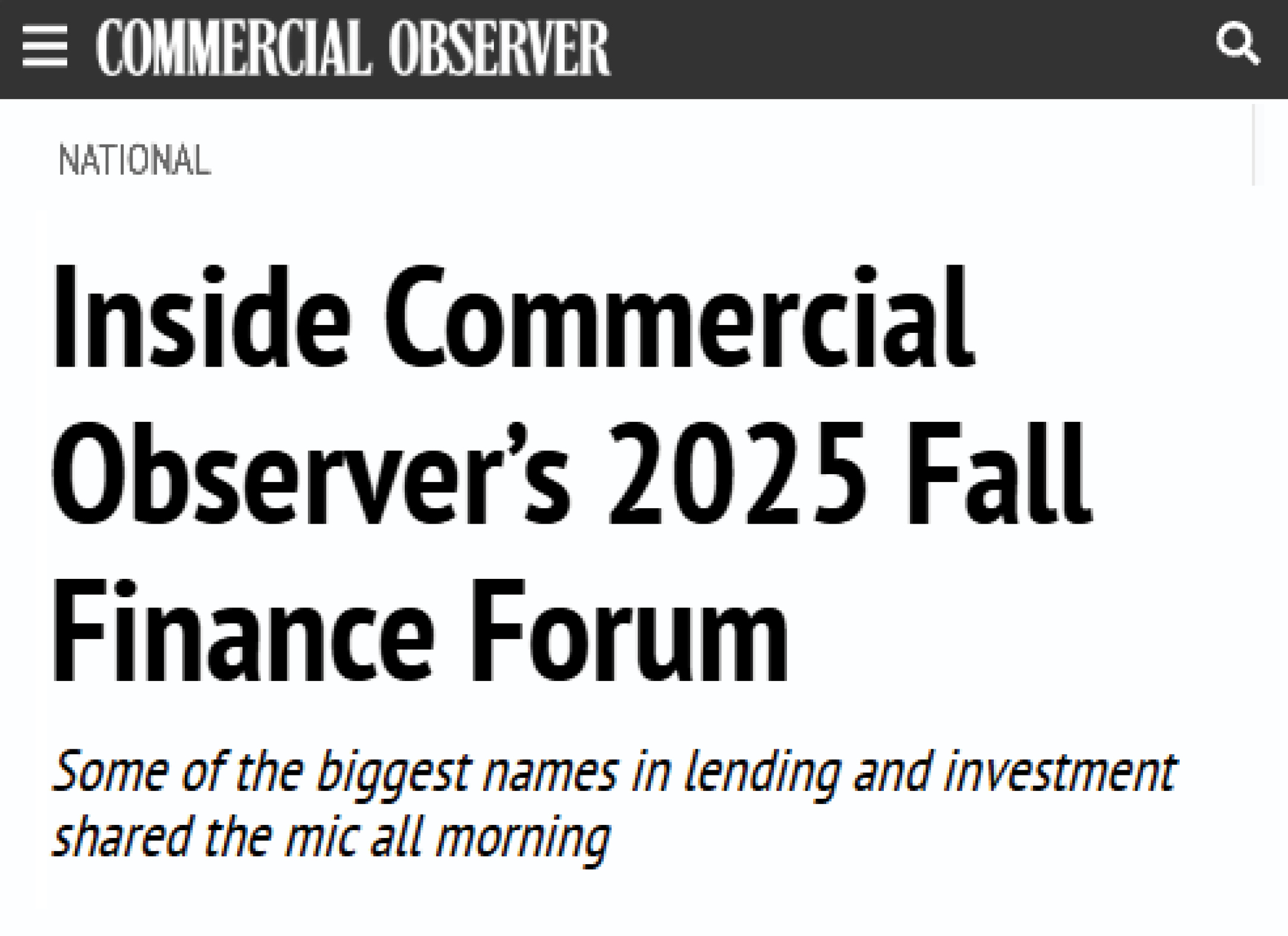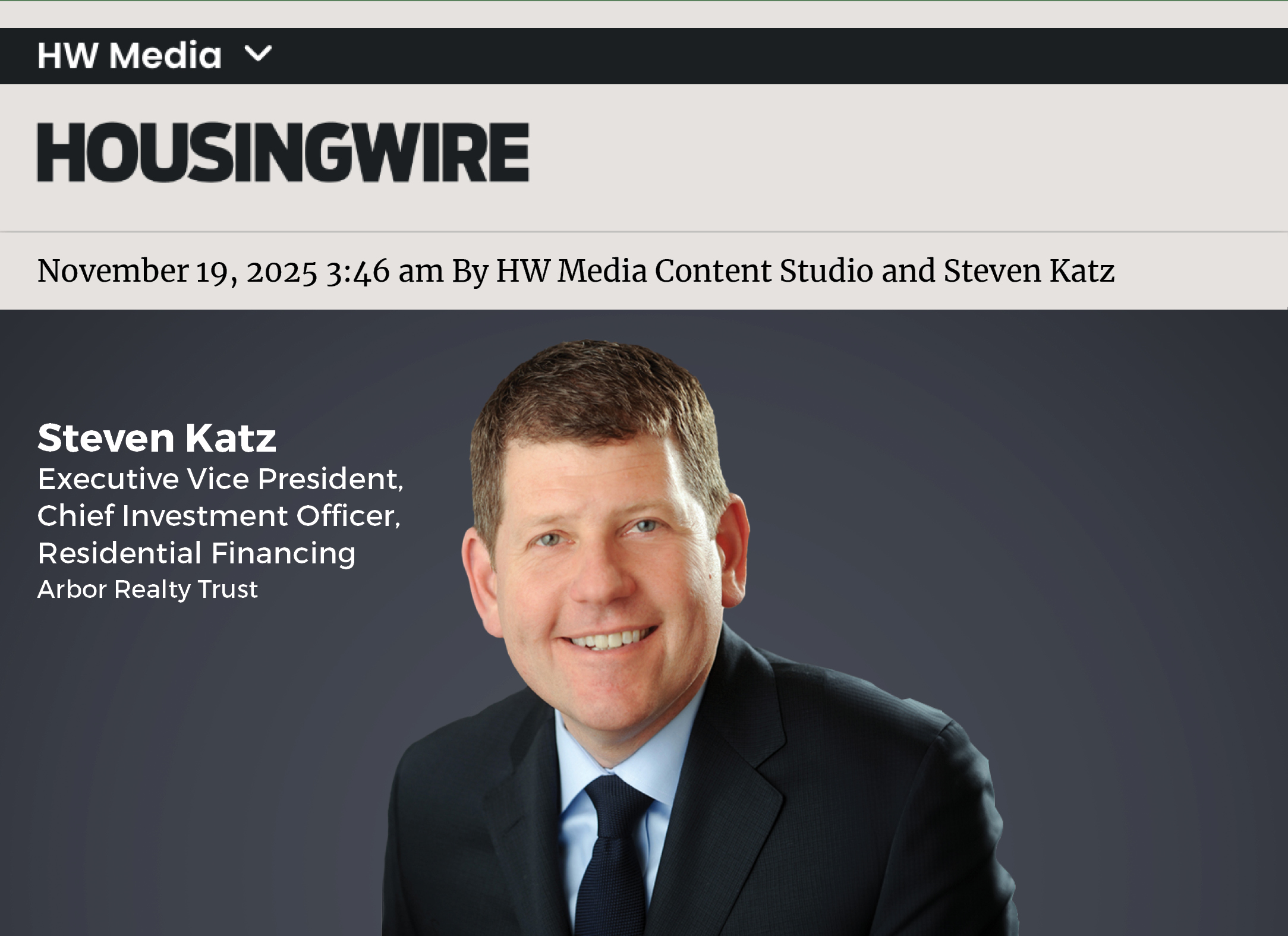Ivan Kaufman Discusses Arbor’s Strength and Diversification on The iREIT Podcast with Brad Thomas

Arbor Realty Trust’s CEO discusses diversified income streams, stock buybacks, and the state of regional bank CRE lending in this wide-ranging interview.
Arbor’s diverse business model differentiates it from other multifamily lenders, Founder, Chairman, and CEO, Ivan Kaufman told Brad Thomas, founder of Wide Moat Research, in an interview on the iREIT Podcast on June 16, 2023.
“We are actually more than a mortgage REIT,” said Kaufman, noting that Arbor has multiple income streams. “Not only are we a leading originator of loans that we hold in our portfolio like most mortgage REITs and create that spread, but we also have a variety of other businesses that work together that create multiple income streams and feed off of one another.”
Thomas pointed out that Kaufman’s belief in the strength of his company prompted him to initiate a stock buyback program this year.
“As everybody’s aware, there was this short report that was written on us … we knew fundamentally it was wrong, and we also knew fundamentally how solid we were as evidenced by the ability to increase our dividend by two cents and still have the lowest payout ratio in the industry.”
Kaufman saw an opportunity in Arbor’s undervalued stock price and had the liquidity and access to capital to purchase more shares.
“Our stock typically trades at an eight dividend,” he added. “An eight dividend is a $20, $21 stock price. So, we’re sitting at $10 and a quarter, and we’re like, ‘Okay, this is a no-brainer for a 50% return.’ When the market normalizes, that’s just incredible.”
Kaufman told Thomas that Arbor is well-positioned to increase its stature in the multifamily lending market following the failures of Silicon Valley Bank and Signature Bank in March.
“We used to have 10 regionals who would compete with us in that sector, [but today] we don’t have that competition. We’re a leader in that space, and we’re growing that book of business, and it’s a great book of business.”
Looking forward, Kaufman sees Arbor leading from a position of strength.
“I’m excited, and I’m excited because we lost the regional banks,” he said. “I lost a lot of competitors. We have a lot of liquidity, and the market’s going to be ours.”





